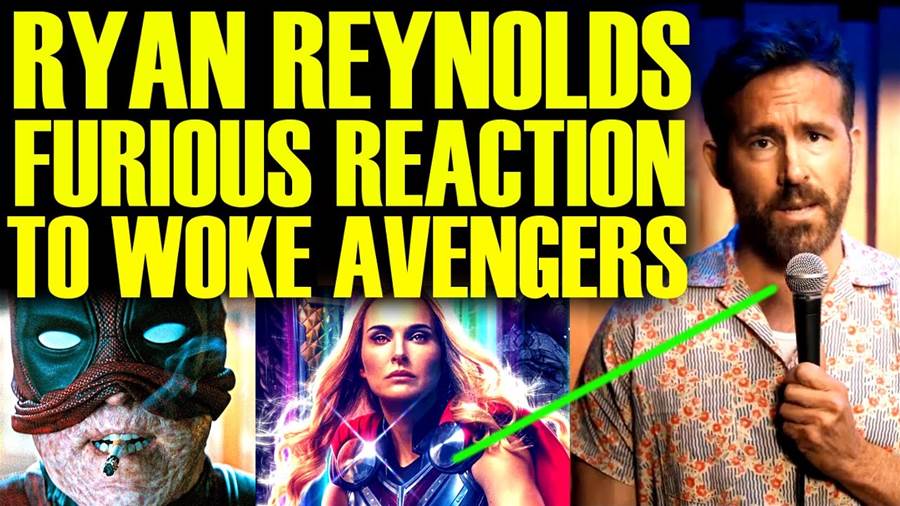

Ryan Reynolds has expressed his discontent with Marvel Studios' decision to make "woke" changes to the Avengers franchise, following the recent drama surrounding Deadpool 3. The actor, who portrays Deadpool, expressed his frustration towards Disney, the parent company of Marvel Studios, for allegedly altering the direction of the popular superhero franchise. Reynolds joins a growing list of Hollywood actors who have expressed concerns about the increasing influence of woke culture in the entertainment industry.
Deadpool, known for his irreverent and meta-humorous style, has become a fan-favorite character in the Marvel Cinematic Universe (MCU) due to his fourth wall-breaking antics and adult-oriented humor.
However, rumors have indicated that Disney is planning to tone down the character's edginess in the upcoming Deadpool 3 movie, which has left Reynolds and many fans disappointed.
The controversy surrounding Deadpool 3 comes amid a broader debate regarding "woke" culture in Hollywood, where films and TV shows are being criticized for prioritizing political correctness and progressive values over entertainment. Many argue that this shift has come at the expense of creativity and the ability to challenge societal norms.
Reynolds' frustration seems to stem from the fear that Disney's decision to make changes to Deadpool and the Avengers franchise is a direct result of the company trying to appease woke sensibilities.
The actor wants the studio to uphold the irreverent and distinct nature of the Deadpool character, which has resonated with audiences due to its unique blend of humor and action.
It is worth noting that Reynolds has not explicitly criticized the concept of social progressivism or inclusivity, but rather the potential watering down of Deadpool's character to fit a more politically correct narrative. This sentiment has been echoed by other actors and fans who fear that Marvel Studios' ongoing integration of more diverse characters and storylines may come at the cost of undermining the essence of the original characters.
While the specific changes planned for Deadpool 3 are yet to be confirmed, it is clear that Reynolds, who has been involved in the creative process of the Deadpool films, wants the character to maintain its unique identity. Whether Disney will heed the concerns of Reynolds and other fans remains to be seen.
Ultimately, the controversy surrounding Deadpool 3 is a symptom of the wider tension between creative integrity and the push for more politically correct narratives in the entertainment industry. The outcome of this debate will likely shape the future direction of beloved franchises and characters like Deadpool, and what it means for the ongoing battle between artistic expression and cultural sensitivities.
